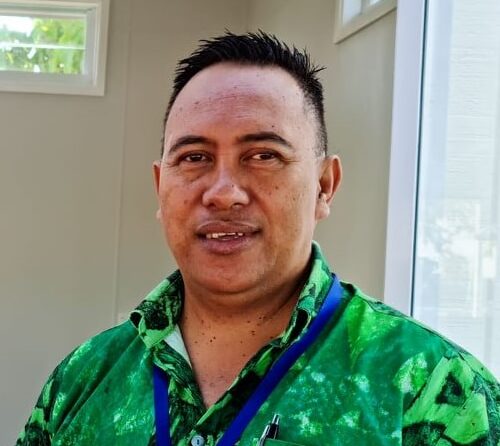TMO issues water safety advice amidst crypto concerns in NZ
Monday 18 March 2024 | Written by Losirene Lacanivalu | Published in Health, National

Secretary of Health Bob Williams. Photo: Supplied/22042113
The Cook Islands has reported no cases of cryptosporidium, a waterborne parasite causing diarrhoea, despite a rise in cases in New Zealand.
Te Marae Ora Ministry of Health (TMO) has reported seven cases of non-infectious diarrhoea and two cases of infectious diarrhoea as of January 1, 2024. These cases, along with others, resulted in a total of 71 gastroenteritis diagnoses.
Health secretary Bob Williams clarified that stool sample testing is routinely conducted by the laboratory team to identify serious or abnormal microorganisms, the type of infections present, and to detect cryptosporidium specifically.
Williams emphasised that, as of now, TMO has not identified any cryptosporidium cases in the Cook Islands.
This confirmation comes amidst a rise in cryptosporidium cases in New Zealand. According to RNZ, New Zealand public health services have reported 262 crypto cases between the beginning of the year and March 8, 2024. This number is more than three times the average of 81 cases reported during the same period over the past five years.
Secretary Williams explained that cryptosporidium is a diarrhoeal illness caused by a parasite called Cryptosporidium, commonly known as “crypto”.
It is a waterborne disease that spreads through contaminated drinking water and recreational water sources. The parasite also spreads through contact with infected people or animals.
“We can diagnose it by examination of stool samples,” Williams said.
“We note there was an outbreak of cryptosporidiosis in the Queenstown region starting in September 2023 where Queenstown issued a water boil notice on September 18, which ended on December 8, 2023.”
Williams highlighted that the advice from Te Whatu Ora New Zealand Ministry of Health at that time was:
- Wash your hands with lots of soap and water for at least 20 seconds and then dry them thoroughly on a clean towel.
- Do not rely on hand sanitizer as this is not effective against cryptosporidium.
- If someone in your household has cryptosporidiosis, ensure all surfaces, including door handles, are cleaned regularly with a cleaning product that contains hydrogen peroxide. Chlorine based products do not work against cryptosporidium and bleach-based products are not as effective.
- Shower before using recreational swimming facilities to wash away any potential Cryptosporidium organisms on your body.
- Stay clear of the water (including swimming and spa pools) if you or your children have diarrhoea. Stay out of the water for a full two weeks after the diarrhoea subsides.
Williams said TMO’s advice will be the same – to avoid water that might be contaminated, and do not drink untreated water from lakes, rivers, springs, ponds, streams, or shallow wells.
He added that if the safety of the drinking water is in doubt, then use commercially bottled water or water that has been previously boiled for at least one minute and cooled completely.












































